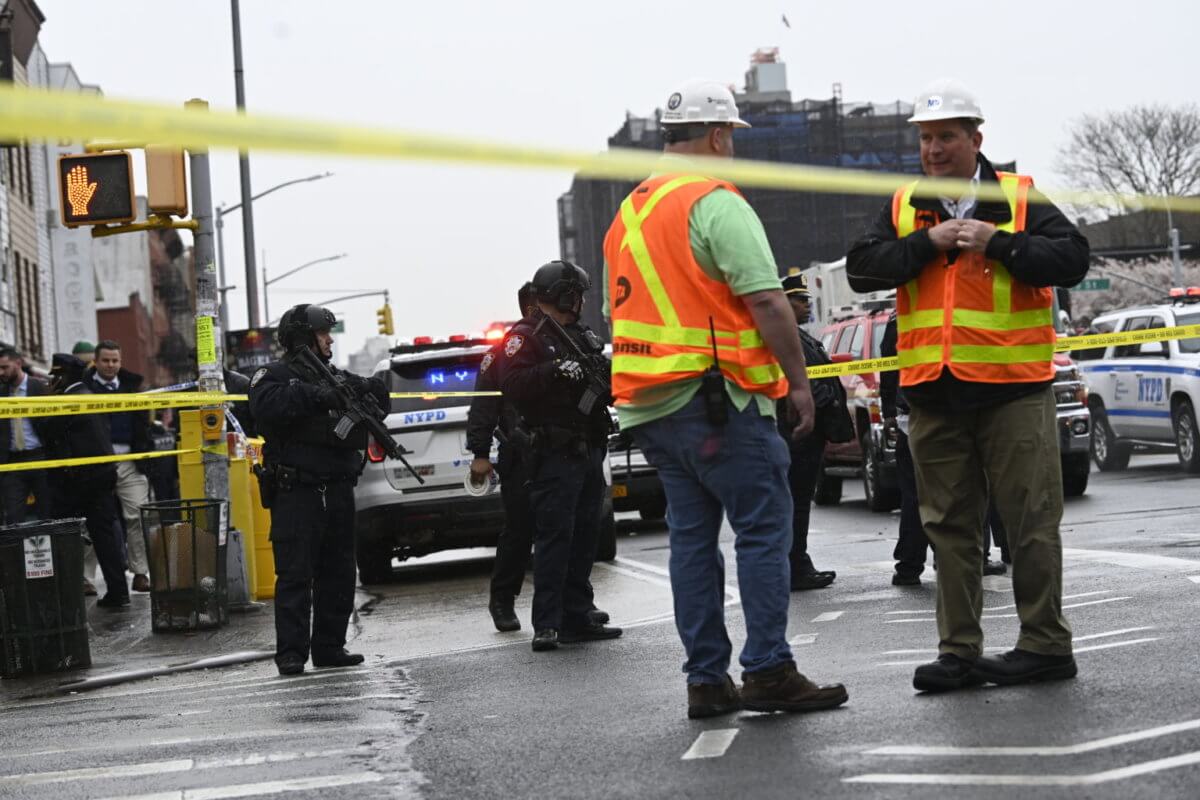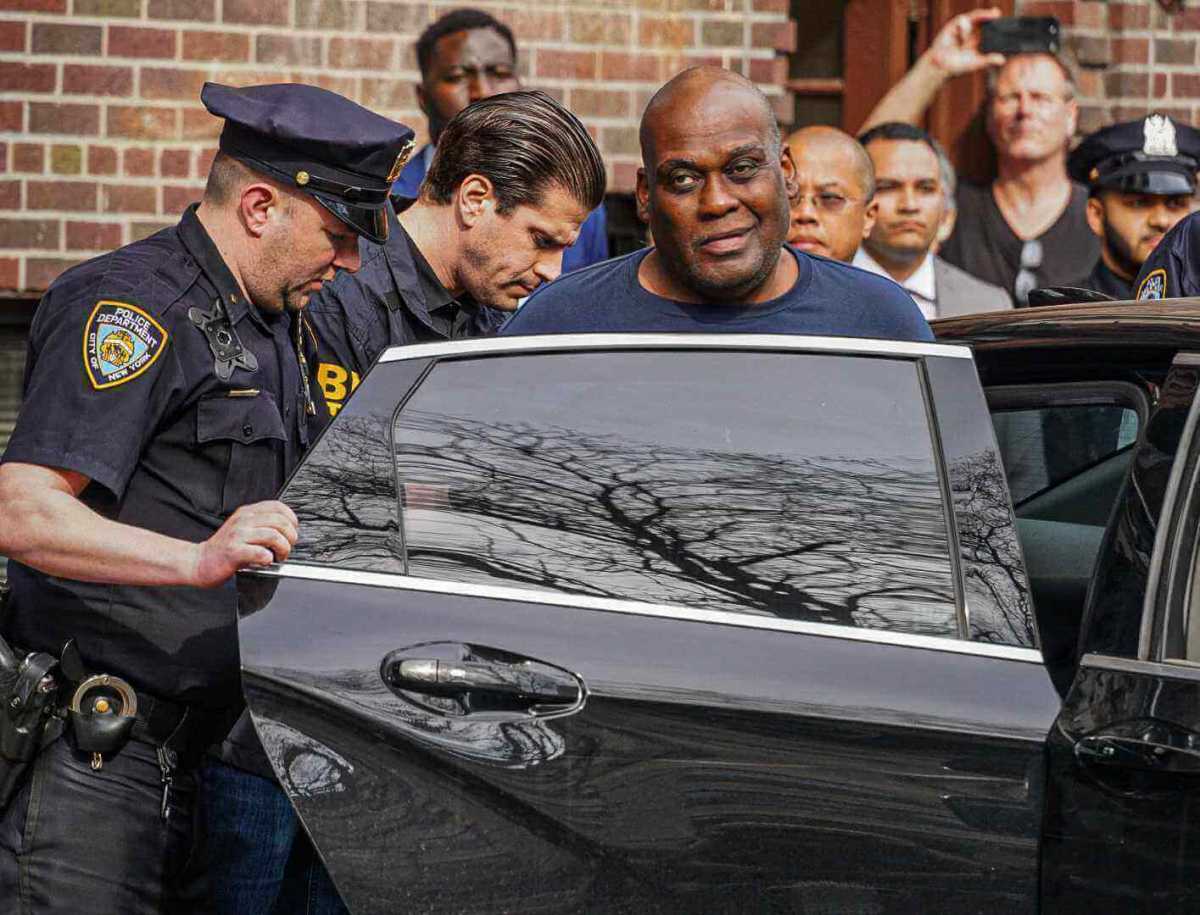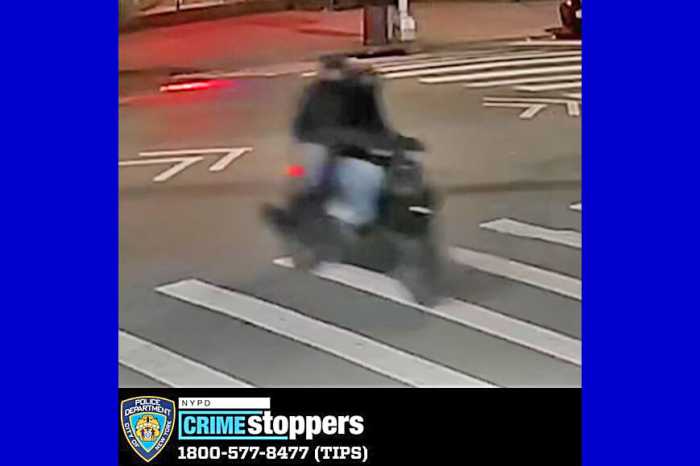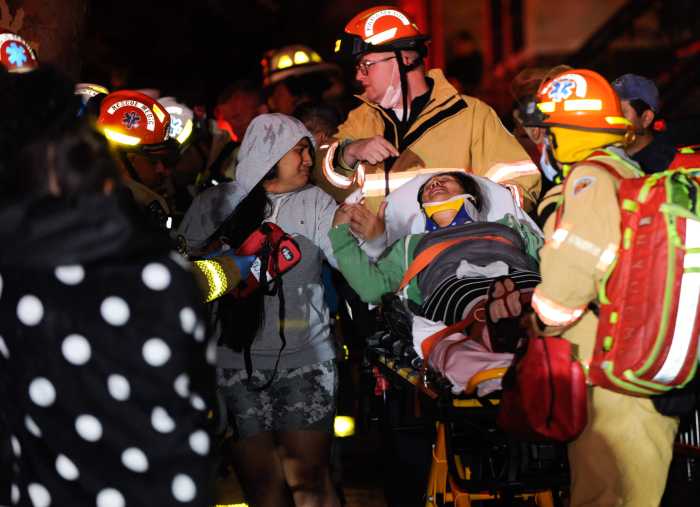Frank James, the accused perpetrator of the April mass shooting on a crowded N train in Brooklyn, has requested that his upcoming trial on federal terrorism charges be moved out of New York — alleging that the local media’s coverage of him has ensured he cannot receive a fair shake from a Big Apple jury.
James’ attorneys with the Federal Defenders filed a motion in Brooklyn Federal Court Monday requesting his trial, set to start in February 2023, be moved to the Northern District of Illinois, which includes Chicago. They argue that both extensive media coverage and public statements by the likes of Mayor Eric Adams mean a New York-based jury would be prejudiced beyond repair against their client.
“The news media and politicians continually published inflammatory and inadmissible information about Mr. James, close in time to the intended start of his trial,” James’ lawyers, Mia Eisner-Grynberg and Amanda David, wrote in their motion. “These efforts combined to produce a jury pool that harbors decidedly negative, often incorrect, and fixed views about him, and, without hearing any evidence, is overwhelmingly inclined to find him guilty despite his presumption of innocence.”
The attorneys even say they have data to back up this claim. Federal Defenders commissioned a poll which they claim proves any potential jury would have already prejudged James as guilty before a trial even took place.
The survey of 400 New Yorkers and 400 Illinoisans, conducted by Select Litigation LLC, found potential jurors from the Eastern District — which includes Brooklyn, Queens, Staten Island, and Long Island — are substantially more likely to have pre-formed opinions of James as guilty.
“Prospective jurors hold these fixed and negative views about Mr. James despite knowing almost nothing about him or the evidence in the case,” reads the filing. “Only a little above one-quarter can articulate any ‘things that you know about Frank James.'”
Approximately 84% of New York-based poll respondents could not identify Frank James by name as the suspect arrested for the shooting, but the majority of potential Brooklyn jurors were aware that the shooting took place and someone had been arrested, unlike their Chicago counterparts. 54% of respondents said they felt less safe riding the subway after the shooting.

Another 57% of New York respondents told pollsters that they believe James is guilty of the charges against him, compared to just 38% of Illinois respondents. The lawyers argue that the poll results and demographic similarity of the Chicago federal court’s jurisdiction mean the midwest would be an ideal place to move the trial.
James, 63, faces federal terrorism and weapons charges as the main suspect of the April 12 attack on a rush hour N train near 36th Street in Sunset Park. He has pleaded not guilty to the charges, for which he could face life imprisonment, and is presently being held pretrial at the Metropolitan Detention Center in Brooklyn, just blocks from the site of the attack.
The defendant stands accused of setting off a smoke bomb and opening fire with a Glock pistol on the crowded train car, injuring 29 straphangers, including 10 by gunshot wound. James escaped the scene and was the subject of a widely-publicized manhunt that ended 30 hours later with his arrest in the East Village, after calling the cops on himself.
From the beginning, the sensationalism of the case made it impossible for James to get a fair shake in Brooklyn, his lawyers say. Within hours of the shooting, the mayor and police officials publicly identified James as the main suspect, with his name and face soon plastered all over local media.
The next day, every New Yorker with a mobile phone received an emergency alert to keep an eye out for the fugitive James, and send any tips in to CrimeStoppers. When James was arrested later that day, the mayor said on television “my fellow New Yorkers, we got him.” Candidates for elected office also used James’ example, with the presumption of guilt, to stoke fear of crime and riding the subway, the lawyers argue.
Prospective jurors have also been severely prejudiced by ongoing coverage of the case in local media, James’ attorneys say, positing that “breathless” coverage in the city’s tabloids and other outlets “universally assumes his guilt” and taints any potential jury pool.
“Local media has repeatedly characterized Mr. James as a terrorist, a maniac, a raving madman and an unhinged nihilist obsessed with killing and hatred,” said Eisner-Grynberg and David. “[N]one of which will be admissible.”
Monday’s motion is not the first time James has expressed distaste with his coverage: at a July status conference, he told senior Judge William Kuntz, who is presiding over his case, that he was feeling down in the dumps after reading articles about himself he found displeasing.
Last month, Kuntz ordered the US Marshals to retrieve James and bring him from jail to court after the defendant failed to show up for another status conference. James blamed unspecified health issues for his no-show, which his lawyer told the judge wouldn’t happen again.
Eastern District spokesperson John Marzulli declined to comment on James’ motion. Prosecutors with the Eastern District have until next month to file a response.
James’ lawyers last month requested that the trial be delayed from its planned start on Feb. 27 of next year, arguing that another federal case, involving a man accused of setting off a bomb at the Times Square station in 2017, needs to play out so that lawyers are fully appraised of James’ potential “sentencing exposure,” a crucial detail in whether they advise their client to take a plea deal or go to trial.
Kuntz denied the request, and the trial remains set for February.






































